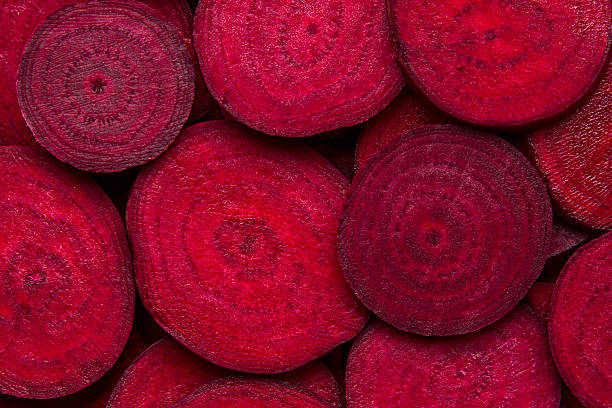Beets Health Benefits
Whether they are roasted, tossed in salads or made into chips, beets (and their greens) add sweetness and crunch to any meal. These nutrient powerhouses are low in calories and contain an impressive list of vitamins and minerals.
Among these are antioxidants, which help protect against disease and oxidative stress, and nitrates, which widen blood vessels and increase oxygen flow.
Fiber
The fiber in beets helps to lower cholesterol and blood pressure, which reduces your risk for heart disease. The vegetable also contains plenty of other nutrients that contribute to healthy body functions, including calcium and magnesium.
Research suggests that the phytonutrients in beets may reduce inflammation and help prevent cancer, diabetes and dementia. Betalains — the pigments that give the beet its color — have antioxidant, anti-inflammatory and detoxification properties.
Studies examining the health benefits of beets typically use beet juice rather than the root vegetables themselves, as juicing is an easy way to get high amounts of nitrates in one serving. However, you should not rely solely on beets for the benefits of nitrates or other nutrients, as they are no substitute for a balanced diet of whole grains, fruits and vegetables, lean proteins and dairy. Too much beet consumption can cause diarrhea and red or black feces for some people, especially if you have a preexisting condition like gout or are sensitive to the plant’s oxalates, which increase uric acid levels.
Nitrates
In addition to nitrates, beets are also a good source of folic acid and potassium. They’re also rich in fiber, antioxidants and vitamins A and C.
Nitrates in beets may help lower blood pressure in some people. Studies show that nitrate-rich vegetables like beets can widen blood vessels, which allows more blood to flow through the arteries and brain. This helps reduce systolic and diastolic blood pressure, which can decrease the risk of cardiovascular disease.
Adding more nitrate-rich foods to your diet isn’t always easy because you have to consume a lot of them. You can cook or juice beets and add them to salads and other dishes, but make sure you don’t overdo it. If you have too much beet juice, you may experience beeturia, which is an orange-red urine color that can indicate iron deficiency and/or kidney stones. Symptoms of beeturia include itching, sneezing and watery eyes. Seek medical attention if you have these symptoms.
Antioxidants
The bright red and purple hues of beets aren’t just eye-catching; they’re a sign that the root veggie is packed with antioxidants. Both the beet root and its leafy greens are rich in potassium, magnesium, fiber, phosphorus, iron, beta-carotene, vitamin C and folic acid.
These antioxidants — including the cancer-fighting compounds nitrates, folate and betalains — help lower blood pressure by widening blood vessels and increasing blood flow, according to research published in 2021 in “Biomolecules.” Nitrates also decrease inflammation in the liver and kidneys, which could otherwise increase your risk for chronic diseases like heart disease and diabetes.
You can find beets in a variety of forms at the supermarket, including raw, canned, pickled and frozen. Try them in smoothies or salads, or make your own beet chips or babaganoush (beet-based dip) at home. Just be sure to consume them as part of a balanced diet that includes whole grains, fruits and veggies, lean proteins and dairy.
Vitamin C
The vitamin C in beets helps the body scavenge free radicals, which can damage cells and lead to disease. The plant’s antioxidant compounds, including betalains, may also prevent DNA damage and help lower blood cholesterol levels.
A 2018 study found that drinking a glass of beet juice reduced blood pressure in several populations. The high nitrate content in beets is thought to have this effect, and a diet rich in nitrate-rich vegetables like beets may help decrease heart disease risk factors.
Beets are also rich in folates, with 100 g of the root providing 27% of your daily needs. The greens, which are edible, provide more than double that amount. Folates, also known as folic acid, are important for DNA synthesis and may prevent neural tube defects in infants.
Add beets to your salads and buddha bowls, roast them, use them as a base for sauces and dips or blend them into smoothies. Eat them cooked or raw, with the tops attached if possible. Just beware that beets can cause red or pink urine and feces, which is called beeturia, though it’s typically harmless and temporary.



